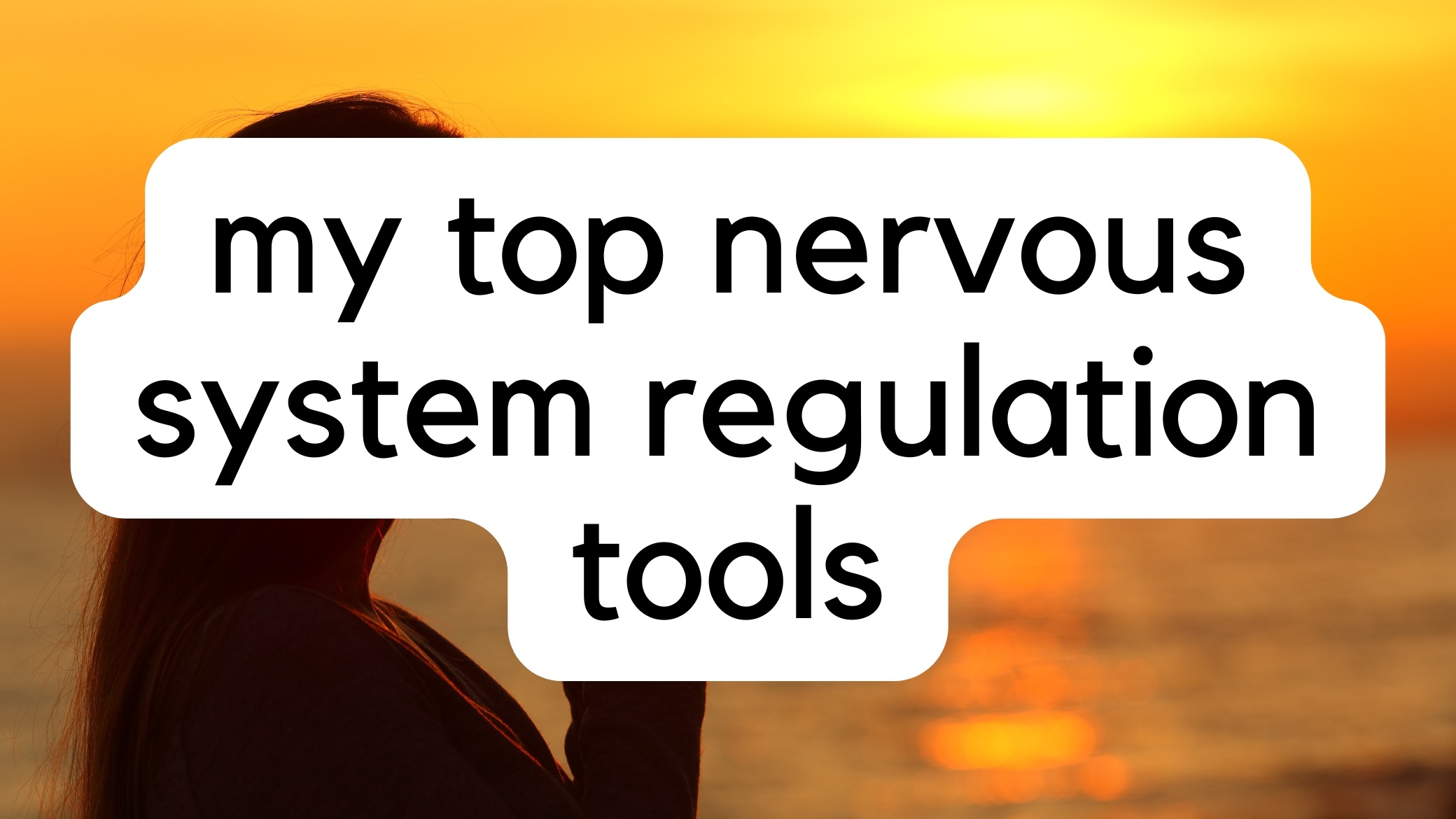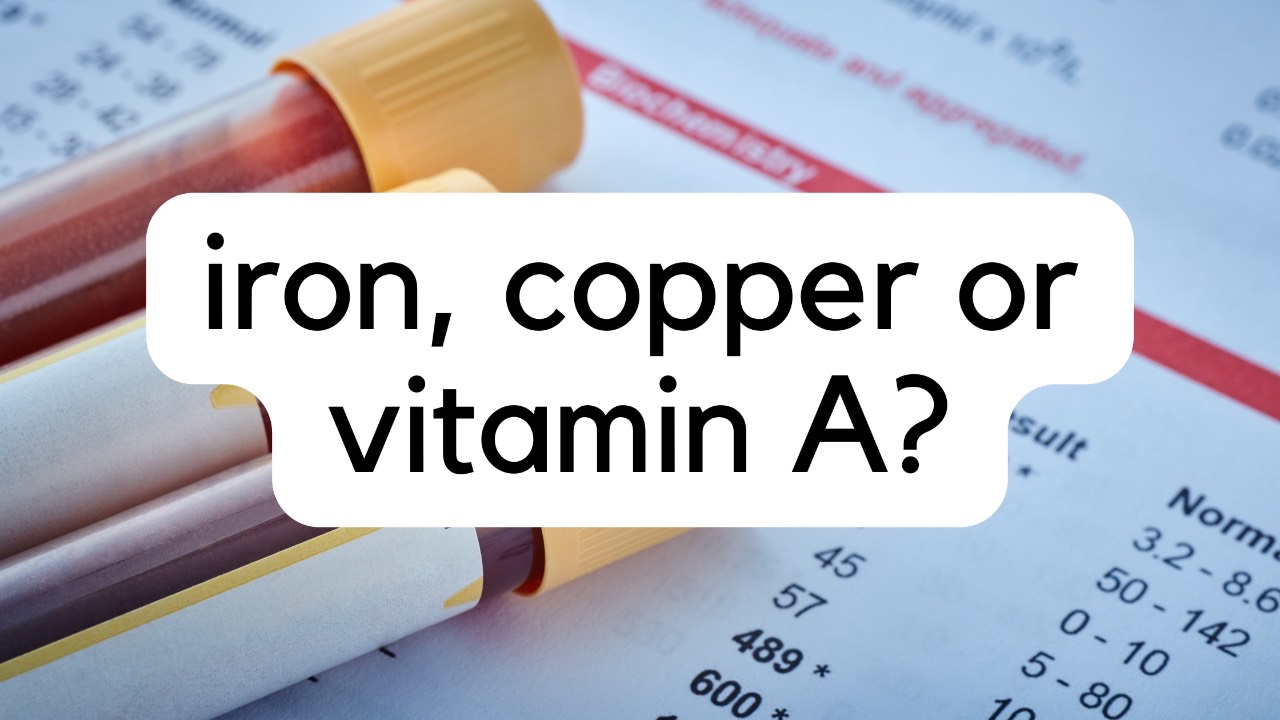
Nervous System Dysregulation: The Role of Fight, Flight, and Freeze in Chronic Illness
Nov 27, 2023Let's explore a topic often overlooked but crucial in the journey of healing from chronic illnesses: nervous system dysregulation. Nervous system dysregulation can manifest as a "mysterious illness" or be labeled with familiar names like fibromyalgia, burnout, Crohn's disease, IBS, depression, anxiety, migraines, insomnia, chronic fatigue, and more.
Many struggling with nervous system dysregulation, have already seen many doctors. It's disheartening when the response received is a dismissive "it's all in your head." This journey is close to my heart as I navigated my struggles, dealing with symptoms like POTS, MCAS, anxiety, panic attacks, IBS, chronic fatigue, and more. Upon sharing my struggles, my primary care physician nonchalantly said, "your blood work looks good; this is all in your head," gesturing towards her own head. I felt hopeless and scared.
Reflecting on my experience, I've come to believe that being stuck in a freeze response (most of the time) drove most of my symptoms. This revelation isn't unique to me; it's a pattern I frequently see in clients, especially those with complex or chronic conditions. Understanding the nuances of different nervous system states is the crucial first step in addressing this dysregulation and starting to heal.
The nervous system orchestrates responses to threats, from heightened alertness of fight to quick movements of flight and the immobilizing freeze. It's controlled by the autonomic nervous system (ANS), consisting of the sympathetic (SNS) and parasympathetic (PNS) branches.
Before delving into the top tools that will transform your nervous system, let's lay out the different states. By tuning into your body and emotions, you may recognize a specific state or a mix of states. People often shift between fight or flight and freeze states. What works for fight or flight may exacerbate the freeze state. Understanding your current state guides you in choosing the most effective approach.
The Fight Response
Activation: A perceived threat activates the sympathetic nervous system.
Physiological Changes: crying, hands in fists with a desire to punch, a flexed and tight jaw with teeth grinding, a fierce fighting expression in the eyes and voice, a strong urge to stomp, kick, or smash with legs and feet, feelings of anger and rage, a knotted stomach with nausea, burning sensations in the stomach, increased heart rate/breathing/blood pressure, dilated pupils, and heightened alertness.
Purpose: Mobilizing energy and resources for a potential challenge.
Identify the Fight Response by asking yourself these questions:
- Do you find yourself frequently getting upset or angry even in situations that might not warrant such a strong reaction?
- When faced with disagreement or criticism, do you have difficulty acknowledging your mistakes or faults?
- Do you often raise your voice or display aggressive behavior when confronted with challenging circumstances?
- Are you aware that your actions may be perceived as intimidating or frightening by people close to you?
- Do you feel a heightened sense of alertness or readiness for conflict even in non-threatening situations?
- When under stress, do you tend to react with aggression rather than seeking a resolution through communication?
- Have you observed a tendency to respond to minor inconveniences with an intense emotional reaction?
- Are you finding it difficult to break free from a cycle of reactive and aggressive responses in your interactions with others?
The Flight Response
Activation: Similar to the fight response.
Physiological Changes: Increased heart rate, rapid breathing, redirection of blood flow for agility, restless legs, numbness in legs, anxiety with shallow breathing, big and darting eyes, leg and foot movement, fidgetiness, and restlessness.
Purpose: Escaping from the perceived threat, directing energy for quick movements.
Identify the Flight Response by asking yourself these questions:
- Do you often find yourself ignoring or downplaying situations as a way to cope with them?
- When faced with challenges, do you feel a strong urge to escape and start anew?
- In confrontational situations, is your immediate response to leave the room or avoid the conversation altogether?
- Have you noticed a pattern of distracting yourself with unrelated activities, hoping the issue will resolve on its own?
- Do you frequently engage in activities or behaviors to divert your attention away from stressful situations?
- When under pressure, do you tend to disengage mentally, distancing yourself from the problem?
- Do you often rely on external distractions, such as work or hobbies, to avoid dealing with emotional challenges?
- Have you observed a tendency to procrastinate or delay addressing issues that cause discomfort?
Freeze Response
Activation: When fighting or fleeing seems unviable, the body shifts into a freeze response.
Physiological Changes: feeling stuck in some part of the body, cold extremities, a sense of stiffness and heaviness, holding the breath or restricted breathing, a feeling of dread with a pounding heart, decrease in heart rate, slow breathing, and numbness.
Purpose: Survival strategy, remaining still and unnoticed to avoid harm.
Identify the Freeze Response by asking yourself these questions:
- Do you frequently find yourself going blank or struggling to express your thoughts and feelings?
- Is there a consistent lack of desire or ability to go out and engage in social activities?
- Do you tend to remain quiet and still in the hope that the issue will resolve itself?
- Have you ever experienced a complete memory lapse regarding a stressful or traumatic situation when asked about it?
- Are there periods where time seems to pass without your awareness, whether it's hours, weeks, months, or even years?
- When faced with challenges, do you often feel paralyzed or unable to take action?
- Have you noticed a tendency to disconnect emotionally or mentally during overwhelming situations?
- Is there a persistent pattern of avoiding making decisions, as if making a choice is overwhelming?
- Do you frequently feel stuck or immobilized when confronted with stress or difficult circumstances?
- Have you observed yourself withdrawing from people and activities as a way of coping with overwhelming emotions?
As I delved into understanding how our nervous system works, I realized something crucial—our body has different reactions to stress, and naturally we all go through these states when there is a threat. The one that shows up most for me is the freeze response. Most of my life I have struggled with symptoms that are associated with the freeze response.
When the nervous system is dysregulated, there may be no apparent threat or no real threat, and the body will still react. Making it very hard to pinpoint what the cause is. The reason behind this is that the body hasn’t processed the trauma yet.
In the past couple of months, I have worked daily on my nervous system, and I can now say with certainty that I feel like a new person. I'm excited to share more about it here —kind of like a behind-the-scenes look at what I've been doing to help my nervous system heal. It's been a bit of a rollercoaster, but I strongly believe these tools can help others too.
💌 Like what you're reading?
Join my Inner Circle to get weekly insights that go even deeper — plus early access to new articles, webinar invites, and exclusive tools to support your healing journey.






